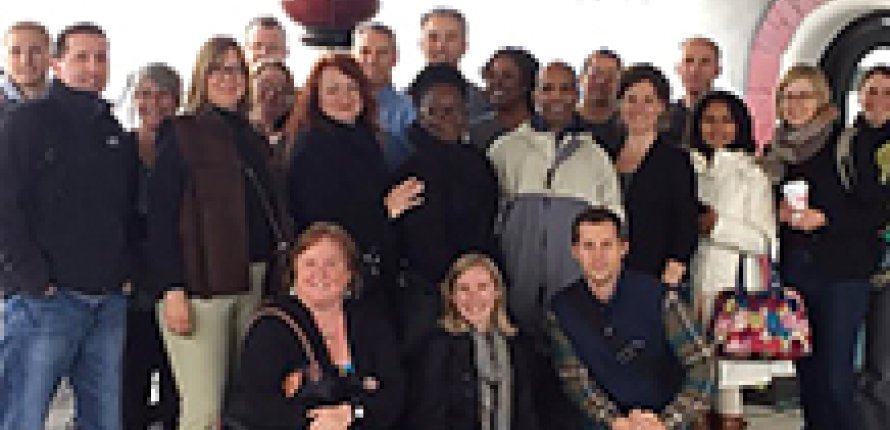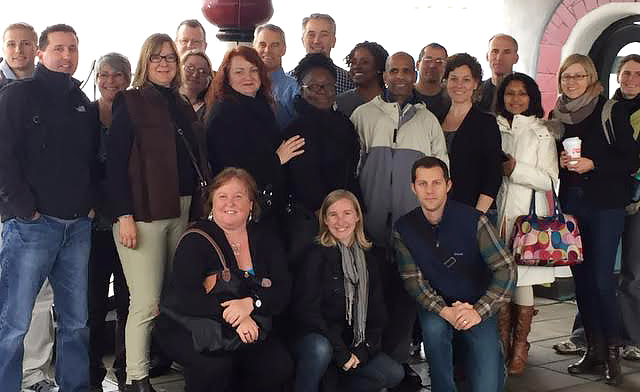Understanding Education in Germany: A Fulbright IEA Experience

Aparajita Maitra, Assistant Dean of Student and Alumni Affairs at Florida International University
2015 Fulbright International Education Administrators Seminar Participant
The Fulbright International Education Administrators (IEA) program provides mid and upper level higher education administrators the opportunity to experience the higher education system in selected countries around the world. Program participants learn about the host country’s education system through campus visits to public and private institutions; receive briefings from faculty and university officials, government officials, and leading educational experts; and develop valuable connections with the higher education systems in other countries. The goal of the program is to provide the grantees with the knowledge, skills, and tools to encourage international student and faculty exchange and enhance overseas study programs at the home institutions.
I took part in the 2015 Fulbright program in Germany, which introduced me to the two-tier German education system that includes the bachelor’s and the master’s degree programs. Currently, Germany, along with 47 other countries in Europe, is participating in the Bologna process (the European study reform) to successfully implement this two-tier degree structure. One of the objectives of the Bologna process is to develop a common European higher education system that supports student and teacher mobility among the participating countries, as well as internationally.
As a grantee from the United States, I find a fascinating aspect of the German education system to be that universities are almost entirely government funded. In 2010, a whopping 23.3 billion Euro in public funds were given to universities to support education. In several interactions with government and university officials, it was clear that most Germans believe that educated citizens and a well-trained labor force are essential for the German identity and to maintain the strong German economy.

The IEA program offered our cohort an opportunity to visit several university campuses to learn about their facilities, programs, and students based on areas of responsibility at our home institutions and of our individual expertise. Since I have a background in higher education administration and responsibilities in student and alumni affairs, I visited the University of Bayreuth, which is taking an innovative approach to develop its international student and alumni relations. Unlike in the United States, in Germany students are expected to “make their way” through higher education with what might be understood by the U.S. academic community as minimal or no support services. The German National Association for Student Affairs (Studentenwerk) oversees student housing, cafeterias, and counseling on campuses across the country, but they do not have offices on every campus and can be difficult to reach. Funding is limited for these support services, and the offices struggle to meet student needs. However, the approach to student support is changing with the Bologna process, which has encouraged innovative teaching methods, student-centered learning, collaboration, and excellent academic training. The University of Bayreuth has taken a notable step to develop program and support services on campus. The International Welcome and Alumni Services Office has several programs to track and engage with students, from their arrival on campus until graduation and beyond, including welcoming international students, and organizing international student nights, cultural programs, and food festivals, which provide opportunities for local and international students to interact with each other. The alumni side of the office keeps in touch with the graduates and helps to celebrate their success stories while engaging them with the campus. The School of Sports Medicine has achieved a milestone in developing its alumni relations by organizing annual alumni reunions and introducing a members-only job portal, an advisory board, and a web site to boost alumni involvement. Both faculty and current students are involved in linking time and talent to make these efforts successful.
The program ended by bringing our group in Germany and the group in France together in the beautiful city of Strasbourg. This meeting provided an opportunity for the German and the French groups to exchange their experiences with the two education systems and to evaluate the success of the Bologna process from an American perspective. Undoubtedly, the campus visits to a variety of institutions, briefings and interactions with faculty and university administrators, government officials and leading educational experts in private and public institutions were invaluable to understand the German education system. The German and French institutions showed a great deal of interest in welcoming a larger number of students from the United States to their universities, and in offering dual degree programs. It will be worthwhile for U.S. institutions to become familiar with the European university system and with the European campuses that are working to bring more than 130 research institutions together to lead science and research across borders. It is also valuable for U.S. institutions to explore dual degree programs in order to improve student and faculty exchange programs for the goal of enhancing student learning, development, and research.
The program gave me the opportunity to learn about the German educational system and explore collaborative opportunities between the home and the host institutions. The campus visits provided an opportunity to explore a variety of universities and colleges, their focus, and institutional structures. The briefings and presentations from university faculty, administrators, leading educational experts at public and private institutions, and government officials, along with the tours and social engagements, provided a unique perspective on the German and the European educational institutions within their socio-cultural context.
Upon my return to the United States, I have been in touch with my German colleagues, and I hope to utilize the Fulbright connections to enhance the student and faculty exchange programs to improve on student learning, student development, and research at my home institution. I have also participated in campus groups to share my Fulbright experience and discuss the application process with my colleagues.
Undoubtedly, the Fulbright experience is a unique opportunity both personally and professionally. I had the opportunity to observe, experience, and enjoy a new country, its people, and culture. Professionally, the opportunities for collaboration and research are unlimited.
